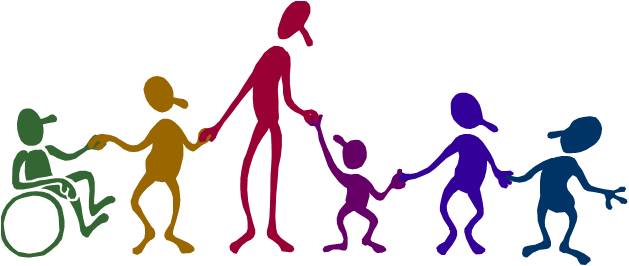In an attempt to analyze communication
skills and behaviors, in addition to ascertaining what can be learned through
verbal and nonverbal messages, I have watched an episode of television that I
was completely unfamiliar with; first without sound and then with the verbal
dialogue added. It was my goal to
determine how well I can interpret the communication of others, and learn how
mistakes in communication can be made. I
also then considered the differences between unfamiliar and familiar situations
as I reflected on the potential differences in having previous background
knowledge in a situation.
**Last Man Standing, ABC network,
Fridays @ 8:00p, sound off vs. sound on**
In watching with the sound off,
I found that I was able to discern family placement, but not necessarily the
actual emotional bonding between the characters. By characterizing by age and physical
proximity I could determine relationships, but simply analyzing facial
expressions and body language I was left unsure about certain connections. I was able to follow a basic story line after
reading the show’s description, but don’t know that I could have really figured
it out without a little help.
After watching with the sound
on, I was supported regarding family placement, but was incorrect about some
integral aspects of the story line, particularly regarding the facial
expressions/reactions of some of the characters relative to the point in the
story line. At one point, I assumed that
the mother was attempting to relate an important piece of information to her
husband, and that he was acting dismissive and using humor to deflect, but in
reality, the point trying to be conveyed was solely satirical and
humorous. Additionally, at a point when
I assumed that the father was trying to sway the future son-in-law in a
particular direction, it turned out that he was doing the exact opposite.
I found it easier to understand
the body language and other nonverbal cues between the younger members of the
cast, but had a more difficult time accurately understanding the messages
between the older cast members, or those between older and younger
characters. I cannot say for sure
whether or not it is because the older characters used a great deal of cynicism
and sarcasm that can go undetected without verbal cues, or if I just feel as if
I can place myself in the shoes of younger characters since I have already been
through those stages in my life. We have
learned that our past dictates how we interpret communication and messages, and
I think that it definitely showed here.
I feel that if I were to try
this experiment with a television program that I was more familiar with, or in
an actual interaction between people that I knew, that I would be more accurate
in my analysis. I found this experiment
to be quite valuable and found myself applying it to my practice. I began to think about if I were of a
different language or culture placed in a meeting where everyone else knew each
other, how confused, and even possibly rejected I would feel.
I also began to consider a
certain mother who is a non-English speaking Muslim, that just recently
enrolled her daughter in a preschool program that I visit a couple of times a
week consisting primarily of white, English-speaking Christians. For the first couple weeks, the daughter had
a very difficult time separating from her mother. While this was understandable, the mother
seemed to not quite know how to best react to the situation. This past week, the daughter seemed pleased
to head into the classroom. The mother
smiled shyly with her gaze downcast, but I happened to catch her eye. With a genuine smile at the step forward, I
only managed to mutter, “Much better today”.
The mother visibly relaxed and smiled widely. I was pleased to see that we connected and
hoped that my gesture was considered appropriate. I am anxious to see if we can actually strike
up a conversation next week, where I intend to apply some of my new knowledge,
and hope to improve my communication skills.






